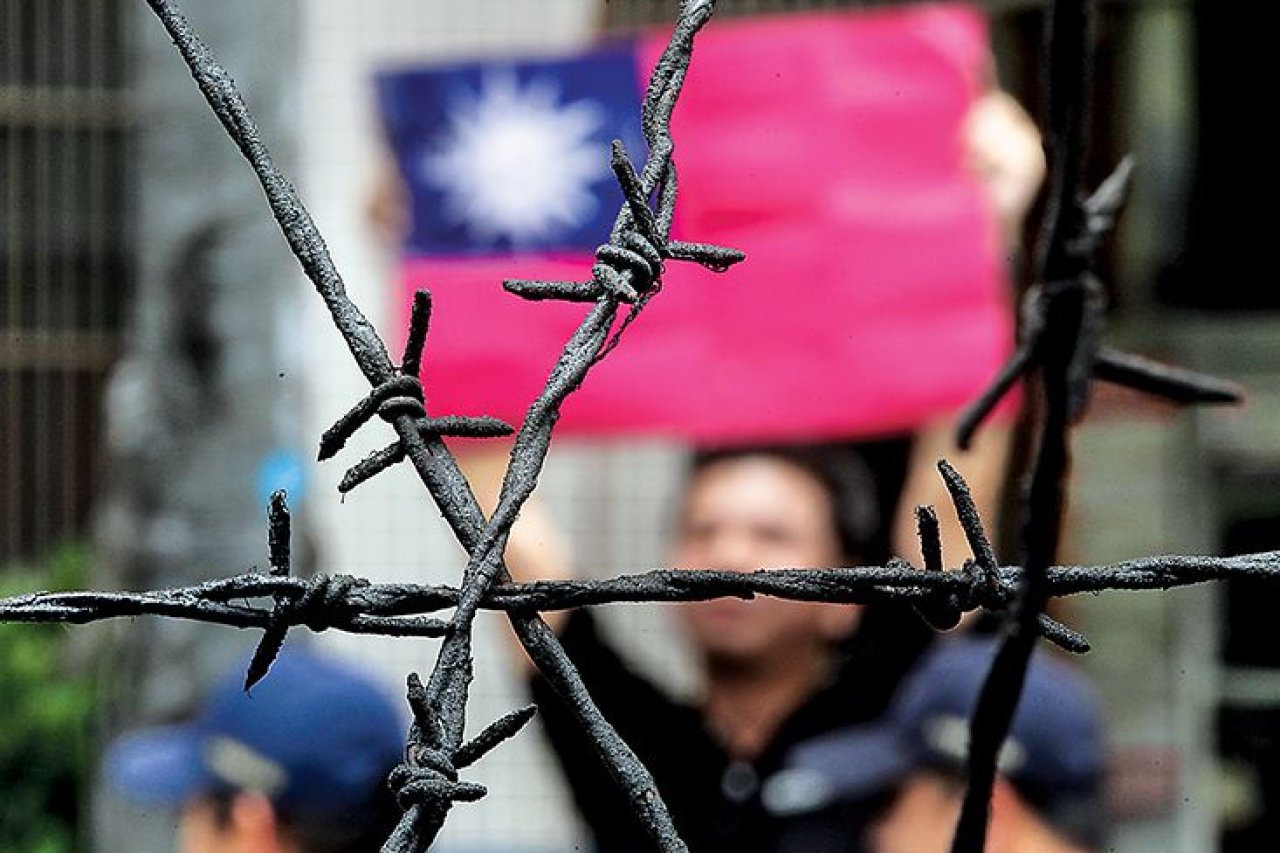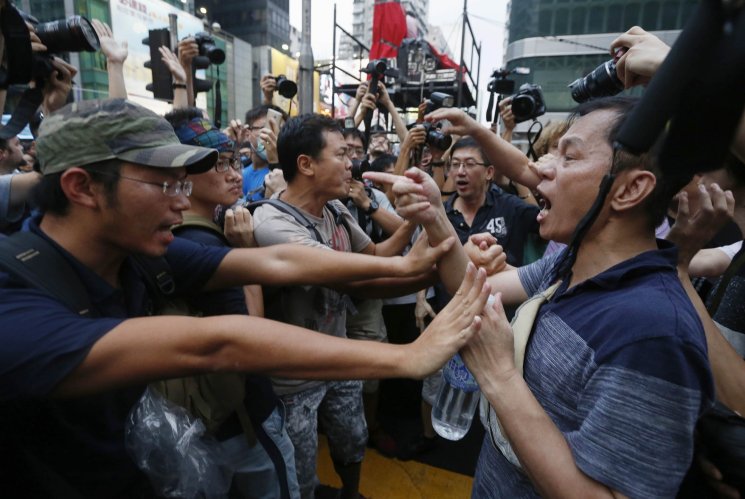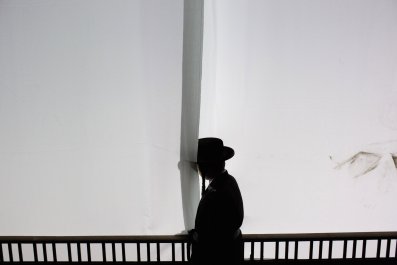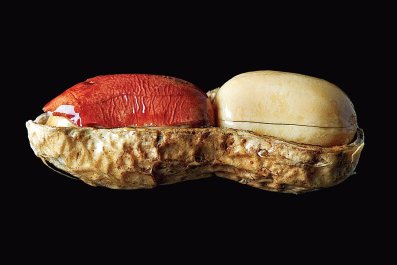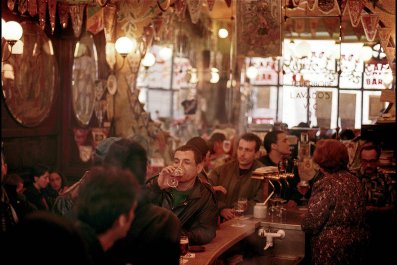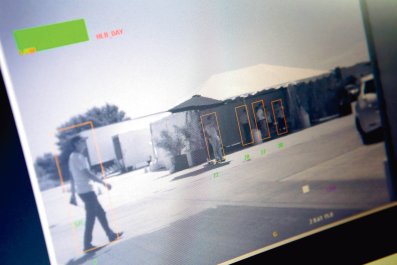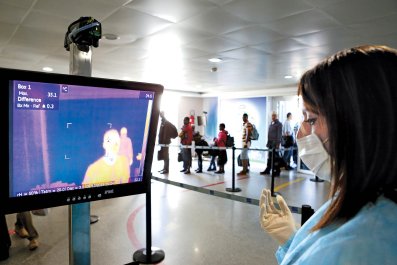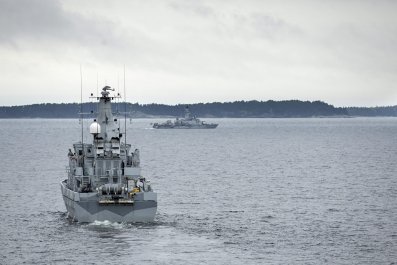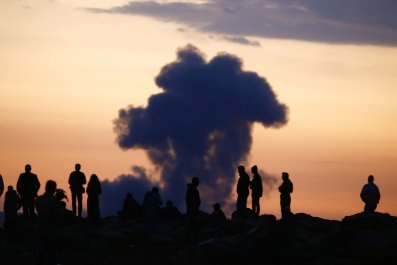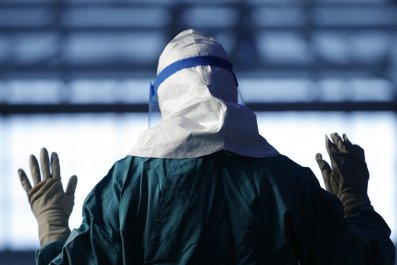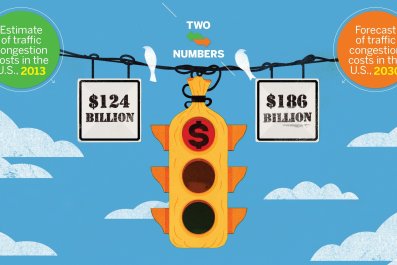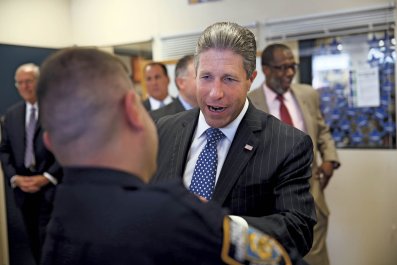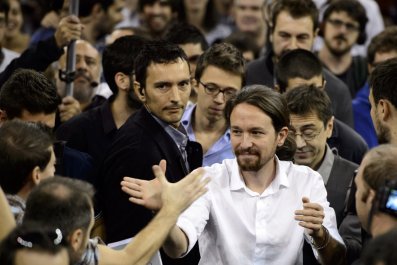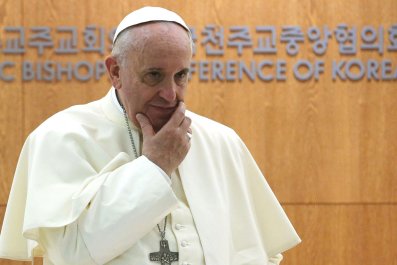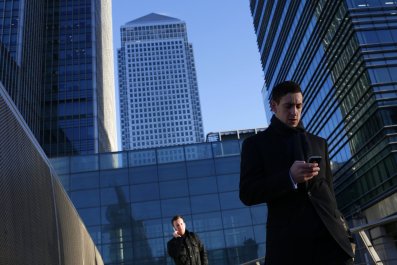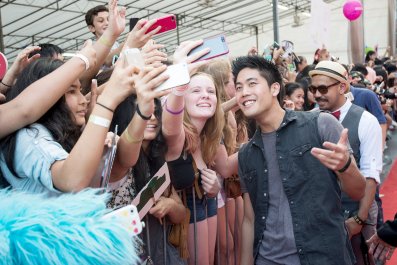The umbrellas are taking their toll on Beijing. The Central Committee may have managed, so far, to avoid major bloodshed in its standoff with Hong Kong demonstrators, but the clash between democracy defenders and guardians of Communist doctrine is reverberating in many of China's provinces and is dimming its hope of peacefully annexing the independent island of Taiwan and uniting it with the mainland.
The pro-democracy protests in Hong Kong are sending a grim signal to businesspeople in the region. After years of improved commercial ties between Taiwan and its giant neighbor, many Taiwanese sense that the thaw is moving too fast for comfort. The clashes in Hong Kong between the Beijing-backed authorities and demonstrators bode ill for Taiwan's advocates of further integration with the mainland.
Taiwan's President Ma Ying-jeou has done more than any of his predecessors to ease tensions, signing dozens of treaties with Beijing that seemed unthinkable until very recently. Yet, even before events in Hong Kong started to dominate our television screens in late September, young Taiwanese protested against his cozying up to China, forcing him to rethink a major trade agreement with the Communist monolith the island separated from in 1949.
Now, as Ma's Kuomintang party faces a challenge, in a round of local elections on November 29, against candidates of the opposition Democratic Progressive Party, the president has sharply rebuked Beijing's leadership, expressing solidarity with the pro-democracy movement in Hong Kong.
"This is a major test case for the new leadership in China," said a senior diplomat from the region, who has managed his country's relations with Beijing. Speaking on condition of anonymity, as criticism of China is a delicate matter in the region, the diplomat said that Xi Jinping, not yet two years in office as China's leader, seems "unpredictable." The way he brings the Hong Kong crisis to a conclusion—peaceful or otherwise—will not only put to the test Xi's ability to handle internal affairs but also China's relations with its neighbors.
As the Hong Kong crisis grew, Xi displayed his political tin ear by inviting pro-China businessmen from Taiwan to visit the mainland. "One country, two systems" was the best way to realize reunification between the mainland and the independent island, he said. But Hong Kong's business district was being besieged by protesters—hardly the right time to resell that dubious idea, which China seems to have unilaterally reneged on in Hong Kong.
The "one country, two systems" notion promised complete self-rule in Hong Kong as Britain wound down its control over its former colony in 1997. But the recent clashes in the streets seemed to have ended any hope that Beijing would let the city's long-established democracy continue to thrive. China insists on handpicking a slate of candidates for an election expected in 2017, while the demonstrators demand that anyone should be allowed to stand for election.
Reacting to Xi's meeting with Taiwanese supporters, Ma addressed the nation on Taiwan's National Day. Reversing his usually careful conciliatory tone, he called on Beijing to make the whole of China a constitutional democracy rather than quash democracy in Hong Kong. "China would simply be making good on a pledge made 17 years ago, when they said that for 50 years they would allow rule of Hong Kong by the people of Hong Kong, a high degree of autonomy and election of the chief executive through universal suffrage," he said.
"Now that the 1.3 billion people [in mainland China] have become moderately wealthy," Ma added, "they will of course wish to enjoy greater democracy and rule of law. Such a desire has never been a monopoly of the West, but is the right of all humankind."
It was a bold declaration of principle from a man who has found a way of co-existing with his country's giant neighbor. "Ma has managed to negotiate over 20 agreements with China, and he did so as an equal," said New York University professor Jerome Cohen, a veteran China watcher. Under Ma, regular air flights between the island and the mainland increased tourism, Taiwan's high-tech manufacturers moved major factories to China, and cultural exchanges grew. Trade across the Taiwan Strait totaled $197 billion last year, almost five times the 2002 figure.
But now, "at the time when Ma would love to have an opportunity to meet with Xi, we see him denounce Xi instead," said Cohen. Even before the Hong Kong demonstrations began in September, as Ma was about to sign a major new pact, the Cross-Strait Services Trade Agreement, many Taiwanese students and civil leaders started fearing that fast economic integration with the mainland would expose Taiwan to too much political pressure from the mainland.
In March, peaceful protests were launched under the banner of the "Sunflower Movement," forcing Ma to delay signing the trade agreement. The pro-democracy movement in Hong Kong, meanwhile, watched the Taiwanese demonstrations carefully, said Vincent Wang, a professor of political science at the University of Richmond. The two movements became close, he noted, and their leaders in Taiwan and Hong Kong communicated with each other, exchanging tactical tips and information.
"The Sunflower Movement in Taiwan impressed [a lot of people in the region] by conducting demonstrations peacefully," Wang said, speaking during a recent visit to Taiwan. The conduct of Taiwan's protesters was one of the reasons the "demonstrations in Hong Kong were remarkably polite and peaceful," he said.
Nevertheless, Beijing and its allies in Hong Kong have refused to relent. When I asked a Chinese diplomat recently whether the refusal to allow any Hong Kong resident to stand for election violates the agreement with Britain to maintain Hong Kong's political independence, he immediately corrected me. "It wasn't one country, two systems, but extended autonomy," he said.
The one country, two systems concept was initially developed by China's then-premier, Deng Xiaoping, in the 1980s as a plan to peacefully integrate Taiwan into the mainland. It was only later adapted for Hong Kong, and to this day it remains Beijing's official plan for Taiwan, which Beijing still considers to be part of China.
But as Beijing is now making it clear it will not allow Hong Kong to maintain its democratic system after all, any illusion that Taiwan would one day agree to a similar arrangement has quickly evaporated, along with many of Ma's other approaches to China.
"I don't think anyone expected anyone in Taiwan to be wooed into peaceful reunification," said Susan Shirk, chair of the 21st Century China Program at the University of San Diego. Though both Hong Kong and Taiwan are Chinese, over the years they have each developed an identity separate from that of the mainland, a fact that is apparently lost on Beijing. "I don't know if they really understand the identity issue," Shirk said.
Meanwhile, Beijing has never dropped its threat to forcefully annex Taiwan, and even as commercial ties increased, China has increased the number of missiles targeting Taiwan. As the elections in Taiwan come closer, we must expect new requests from Taiwan for American defensive arms, said Wang. For example, he said, Taiwan may ask for the U.S. blueprints of diesel submarines to build new subs and replenish the aging fleets in Taiwanese shipyards.
America's long-term policy has been to defend Taiwan against any Chinese attempt to annex it forcefully and to maintain the island's defensive capabilities. But since 2001, when the U.S. sold Taiwan eight submarines, no major new American weapons system has been sold to the island. When Taipei tried to buy a new generation of F-16 fighter jets recently, the Obama administration opted to refurbish its older F-16s instead.
"We know that the folks in Taiwan and the mainland watch to see whether there's the slightest change, and we're very careful not to change" that arms policy, said Shirk, who was a State Department official in the Clinton era with responsibility for China, Taiwan, Hong Kong and Mongolia.
Regardless of the delicate diplomatic dance of U.S. arms sales to Taiwan, could the souring of relations between Taiwan and China, combined with Beijing's more assertive policies across the region, deteriorate into a military confrontation? Or even war?
"Expect some rise in tensions, but I don't think it will result in hostilities," says New York University's Cohen, adding, "Then again, I've been often wrong before."



